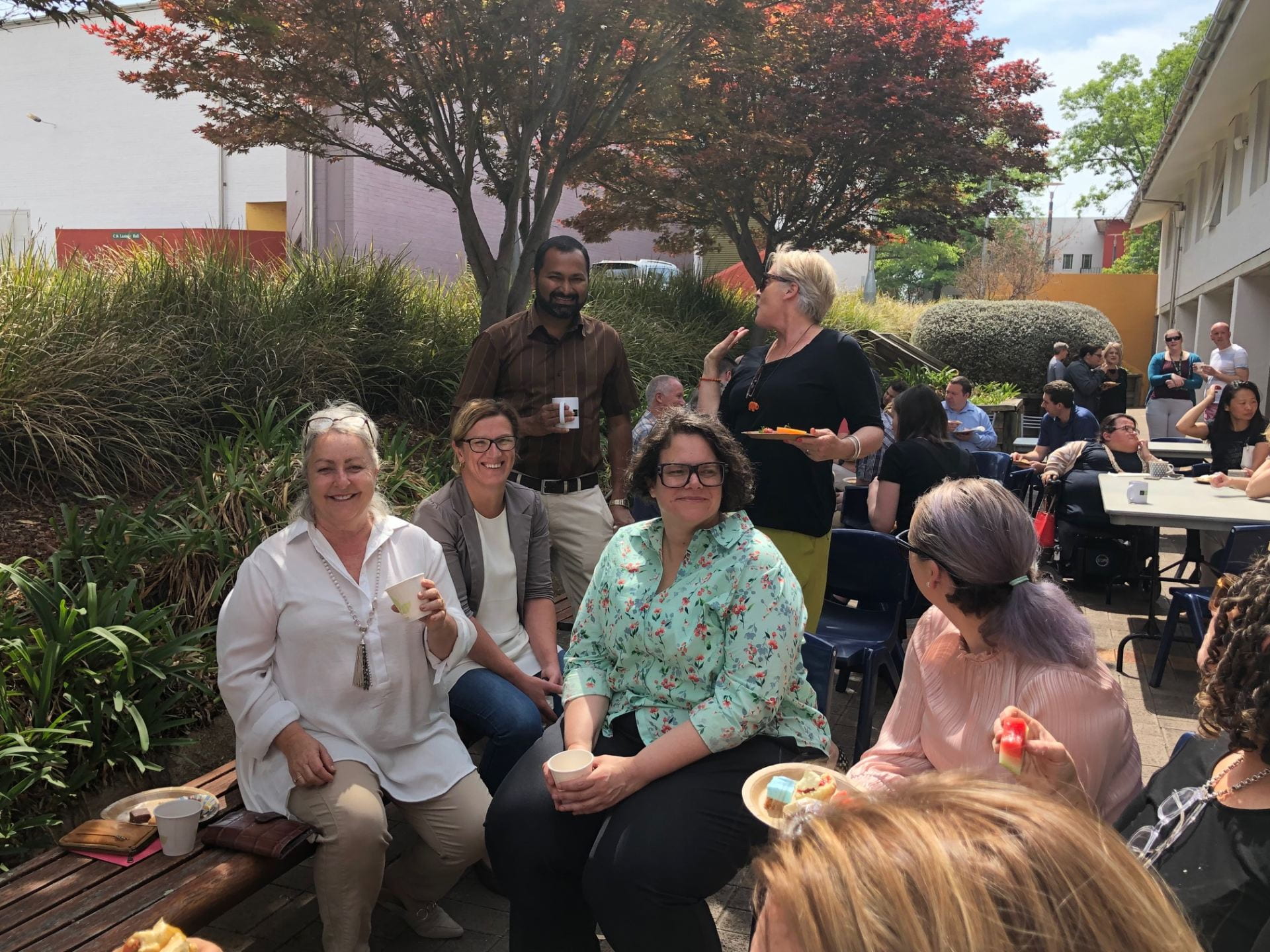Breast cancer is the most common cancer diagnosed in women. In Australia, about 17,000 women are diagnosed with breast cancer each year, and one in eight will be diagnosed by the age of 85.
But what is little known is that men get breast cancer too. About 170 men are diagnosed with breast cancer in Australia each year. Most will not survive as many don’t realise breast cancer can affect men, or ignore the symptoms for too long. Early action is the key.
Yesterday, for October’s Breast Cancer Awareness Month, a morning tea was held outside UNE International to raise money for the Armidale Rural Referral Hospital’s Oncology Unit, and to raise awareness of men’s breast cancer.
As a result, over $1,000 will be donated to the Unit. A big thanks to everyone who made a kind donation.
The Oncology Unit is run by a group of dedicated, positive, caring people who help to make the lives of many local women and men more comfortable and more fun every day. If you would like to contribute to the fundraising, please contact Sally Carmichael, scarmic8@une.edu.au.
Men, here’s what to look for
The most common symptom of breast cancer in men is a painless lump in the breast close to the nipple. Other possible symptoms include:
- a discharge from the nipple
- a change in the shape or appearance of the nipple or pectorals
- a change in the shape or appearance of the breast, such as swelling or dimpling
- pain
- swollen lymph nodes (glands) under the arm.
Not all changes are due to cancer, but it is important to see a doctor as soon as possible if you notice any new or unusual breast changes. If the changes are due to cancer, finding it early will mean a better chance of effective treatment.
Read this info sheet to find out more about breast cancer in men.
For more information on breast cancer in general, visit the Cancer Council website.
Close to home
Rhod Carmichael in ITD says his door is always open to people wanting to chat about breast cancer.
Rhod was diagnosed three years ago, at age 50. He underwent treatment (with the excellent Armidale Oncology Unit) and was given the all clear. Six months later, the cancer returned. Rhod is now at stage 4, metastatic.
Advocating for awareness and getting the message out to ‘check your boobs’, Rhod and his family are making every day count. His positive attitude goes a long way to improving his quality of life.
Rhod is involved in awareness forums and documents his journey through The Hat Project – A Unique Cancer Battle Facebook page. Post your own hat photos on the page to show your support – and share it with your friends!
Questions, stories, just about anything

